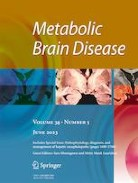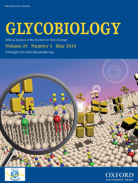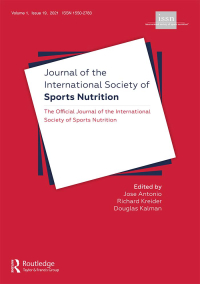The Science of Ribose
What scientific evidence is there to support the use of Ribose?
Below is a short summary of the incredible, and ongoing, research investigating the impact of ribose
-
 By increasing the levels of ribose in the body, it can help to improve energy levels and reduce fatigue.
By increasing the levels of ribose in the body, it can help to improve energy levels and reduce fatigue.
-
 Ribose is an important component of nucleotides, the building blocks of RNA and DNA, and can help to support cognitive function and memory. Ribose supplements have been shown to improve cognitive performance, reduce mental fatigue, and increase alertness. Ribose supports brain function by improving energy metabolism and reducing oxidative stress in the brain.
Ribose is an important component of nucleotides, the building blocks of RNA and DNA, and can help to support cognitive function and memory. Ribose supplements have been shown to improve cognitive performance, reduce mental fatigue, and increase alertness. Ribose supports brain function by improving energy metabolism and reducing oxidative stress in the brain.
-
 Ribose has been shown to have positive effects on heart health by improving blood flow and reducing inflammation. Ribose helps myocardial cells, restoring ATP, increasing contractions, and increasing the amount of blood flow into the heart and preventing “reperfusion injury” and free-radical damage to the tissue.
Ribose has been shown to have positive effects on heart health by improving blood flow and reducing inflammation. Ribose helps myocardial cells, restoring ATP, increasing contractions, and increasing the amount of blood flow into the heart and preventing “reperfusion injury” and free-radical damage to the tissue.
-
 Ribose has been shown to have antioxidant properties and can help to protect cells from damage caused by free radicals. It also plays a role in the synthesis of ATP, the energy currency of the cell, and can help to improve mitochondrial function.
Ribose has been shown to have antioxidant properties and can help to protect cells from damage caused by free radicals. It also plays a role in the synthesis of ATP, the energy currency of the cell, and can help to improve mitochondrial function.
-
 Ribose plays a key role in energy production in the body. It is a critical component of ATP, the molecule that provides energy for all cellular processes.
Ribose plays a key role in energy production in the body. It is a critical component of ATP, the molecule that provides energy for all cellular processes.
-
 Ribose supports the growth and maintenance of healthy gut bacteria, including Lactobacilli and Bifidobacteria. It also helps to reduce gastrointestinal symptoms such as bloating, cramping and diarrhea.
Ribose supports the growth and maintenance of healthy gut bacteria, including Lactobacilli and Bifidobacteria. It also helps to reduce gastrointestinal symptoms such as bloating, cramping and diarrhea.
-
 Ribose plays an important role in the function of the immune system by supporting the production and maintenance of immune cells, including T-cells and B-cells. It also helps to reduce inflammation and oxidative stress in the body.
Ribose plays an important role in the function of the immune system by supporting the production and maintenance of immune cells, including T-cells and B-cells. It also helps to reduce inflammation and oxidative stress in the body.
-
 Ribose is a key component in the production of ATP, which is essential for energy production in the body. It can also help to improve exercise performance and reduce fatigue in those with chronic fatigue syndrome or fibromyalgia.
Ribose is a key component in the production of ATP, which is essential for energy production in the body. It can also help to improve exercise performance and reduce fatigue in those with chronic fatigue syndrome or fibromyalgia.
-
 Ribose is metabolized in the liver and has been shown to support liver function by reducing inflammation and oxidative stress. It also helps to improve energy metabolism and glucose uptake in the liver, which can benefit those with liver conditions.
Ribose is metabolized in the liver and has been shown to support liver function by reducing inflammation and oxidative stress. It also helps to improve energy metabolism and glucose uptake in the liver, which can benefit those with liver conditions.
-
 Ribose has been shown to support cardiovascular health by improving blood flow and reducing the risk of heart disease. It also helps to reduce oxidative stress and inflammation in the heart, which can improve overall heart function.
Ribose has been shown to support cardiovascular health by improving blood flow and reducing the risk of heart disease. It also helps to reduce oxidative stress and inflammation in the heart, which can improve overall heart function.
Dr. Coy and Intelligent Sugar Research
Award winning scientist Dr. Johannes Coy discovered the TKTL1 gene. This gene allowed modern humans to evolve from our Neanderthal ancestors.
Homo sapiens produce more neurons in the frontal lobe than Neanderthals due to a single amino acid change in the protein TKTL1.
Unfortunately, our modern diet contains an excess of glucose, fructose and sucrose (‘classic sugars’) and we need half the calories our ancestors needed to survive. This has turned TKTL1 against us.
Classic sugars spike blood sugar, causing inflammation, insulin resistance and disease. The epidemic of lifestyle diseases, like diabetes and cancer, are driven by TKTL1 and our sweet excess. But it doesn’t have to be this way.

“The suffering for those affected, and their relatives (as well as the financial impact on society, and the burden on the next generation) could be avoided, if knowledge about the importance of blood sugar levels were implemented promptly, and our diet adapted to today’s situation with little physical exercise and a lot of stress”
Dr Johannes Coy
Want to know more?
If you would like to learn more about the extensive research supporting the way ribose impacts wellness, here is a small sample of some studies we think you’ll find interesting.

Nicotinamide ribose ameliorates cognitive impairment of aged and Alzheimer’s disease model mice
In this study, the researchers investigated the effects of nicotinamide ribose (NR) supplementation in mice models of Alzheimer’s disease (AD) and aging. The mice were given NR-supplemented food for three months, and their cognitive function, behavior, pathological processes, and biomarkers were assessed. The findings revealed that NR supplementation improved short-term spatial memory in aged mice and contextual fear memory in AD mice. It also inhibited astrocyte activation and reduced the accumulation of amyloid-beta (Aβ) plaques in the brains of AD mice. Additionally, NR supplementation prevented weight gain in both aged and AD mice. These results suggest that NR has selective benefits for AD and aged mice, highlighting its potential as a preventive measure against dementia.

Effects of ribose on exercise-induced ischaemia in stable coronary artery disease.
There is no established treatment specifically aimed at protecting or restoring cardiac energy metabolism, which is greatly impaired by ischaemia. Evidence that the pentose sugar ribose stimulates ATP synthesis and improves cardiac function led researchers to test the possibility that ribose increases tolerance to myocardial ischaemia in patients with coronary artery disease (CAD).

A Combination of Nicotinamide and D-Ribose (RiaGev) Is Safe and Effective to Increase NAD+ Metabolome in Healthy Middle-Aged Adults: A Randomized, Triple-Blind, Placebo-Controlled, Cross-Over Pilot Clinical Trial
This study evaluated the effects of RiaGev, a combination of nicotinamide and D-ribose, on NAD+ metabolome enhancement in healthy middle-aged adults. Supplementing 1520 mg twice daily for 7 days significantly increased NAD+ metabolites, reduced blood glucose without altering insulin secretion, and decreased waking cortisol levels. Participants also reported less fatigue and improved mental focus, with no adverse effects observed, demonstrating RiaGev’s safety and efficacy.

Prevalence of auto-antibodies against D-ribose-glycated-hemoglobin in diabetes mellitus
High blood sugar levels lead to the formation of advanced glycation end products (AGEs), which contribute to the progression of diabetes. In a study, structural changes in hemoglobin (Hb) caused by D-ribose were observed, potentially triggering an autoimmune response in diabetic patients. Autoantibodies against D-ribose glycated-Hb were found to be prevalent in diabetic patients’ blood, indicating their potential as biomarkers for diabetes progression.

The use of D-ribose in chronic fatigue syndrome and fibromyalgia: a pilot study
Fibromyalgia (FMS) and chronic fatigue syndrome (CFS) are debilitating syndromes that are often associated with impaired cellular energy metabolism. As D-ribose has been shown to increase cellular energy synthesis in heart and skeletal muscle, this open-label uncontrolled pilot study was done to evaluate if D-ribose could improve symptoms in fibromyalgia and/or chronic fatigue syndrome patients.

The influence of D-ribose ingestion and fitness level on performance and recovery.
Skeletal muscle adenosine triphosphate (ATP) levels are severely depleted during and following prolonged high intensity exercise. this study was designed to determine what influence D-ribose might have on muscular performance, recovery, and metabolism during and following a multi-day exercise regimen.
Latest News & Insights
The Warburg Effect: Diet and Cancer (the latest evidence)
In 1931 Otto Warburg won a Nobel Prize for his research into tumours, and cancer cells. He discovered that healthy cells and cancer cells ‘breathe and eat’ (metabolise) very differently.
Empowering Women with Cancer: An Interview with Caroline Justich, Founder of Be accepted
Inspirational and cancer-defying, Caroline Justich is the founder of Be accepted, Home of the smart 8, an initiative for women diagnosed with cancer.



